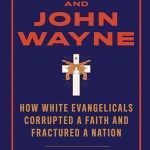Southern Baptist Theological Seminary church historian John Wilsey recently took a shot at Kristin Kobes Du Mez’s Jesus and John Wayne in a review published at a conservative website called Ad Fontes. Though Wilsey shows much more empathy than some […]
